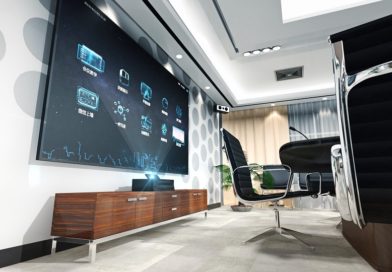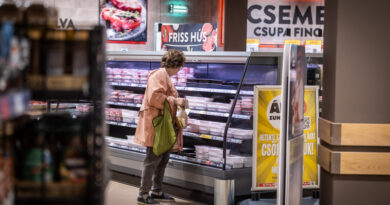Store networks to grow as international retailers embrace multichannel
Multichannel will complement not compete with ‘bricks and mortar’ retailing over the next two years and will drive increased traffic to stores say international retailers, according to a ground-breaking new study by CBRE.
Investment in new and existing stores is also the number one priority for international retailers over the next two years, with the majority requiring a greater number of stores and increased shop space because of their multichannel strategy.
At a time when there is an unprecedented level of consumer access to the internet, CBRE has commissioned the most comprehensive and far-reaching study of its kind, canvassing the opinions of 50 leading international retailers with a combined store network exceeding 32,000 stores globally, to explore:
· The significance of multichannel – measuring the extent to which retailers have embraced the multichannel process
· The role of the store in multichannel
· The future of a store in a multichannel world
· How retailers make money from multichannel retailing
Multichannel retailing allows the consumer to transact via a variety of connected channels such as in-store, online over a computer, and via a mobile site or ‘app’. This is revolutionising the way consumers shop, but has raised concerns among governments, local planners and shopping centre owners over the future demand and provision of real estate for retail use.
‘The Role of Real Estate in the Multichannel World’identifies retailers’ current strategies for multichannel and how they see this developing in two years’ time. Launched today at the World Retail Congress in London, CBRE will reveal highlights from the report including:
The significance of multichannel in retailing:
· While investment in multichannel is important, investment in new and existing stores remains the number one priority for retailers
· Today, the majority of retailers (70%) see themselves primarily as “bricks and mortar” retailers; however, in two years’ time a similar majority (63%) will have converted into fully integrated multichannel businesses
· On average, retailers said that their online sales today represent 5% of their total; in two years’ they estimate this will nearly double to 10%
· Social networking and investment in mobile-commerce are considered secondary issues
The role of the physical store in multichannel retailing:
· Over the next two years, the store is expected to play a significant role in the delivery network, with shoppers favouring pick-up from store and home/office delivery equally
· At present, the store is not a popular choice among retailers for online order fulfilment, but it is set to play an increasingly important role over the next two years, with two thirds of retailers intending to use their shops to fulfil online orders at least occasionally
· The majority of retailers aim to enhance their multichannel capability by offering mobile apps or smart phone enabled websites (77%) as well as kiosks in their stores (80%) within the next two years
· Retailers will require more regional distribution centres, as opposed to local or on-site storage
The future of the physical store:
· Within the next two years 72% of retailers will operate the same or a greater number of stores in their domestic market
· 60% of retailers say they will need more shop space across their total network as a result of their multichannel strategy in two years’ time
· Retailers are divided on their plans to take stores in “secondary cities” and “small towns” with a similar number saying they will increase as decrease
· Online retailing is set to grow faster than store expansion over the next two years; however, retailers are set to increase their coverage of both channels
· Online retailing will play a significantly greater role than now in emerging markets including Central and Eastern Europe, Asia Pacific and the Middle East
“Our message to the retail and real estate industry is don’t panic. Consumer-driven technology continues to advance and contrary to widely held assumptions multichannel retailing is actually complementing not competing with existing store networks. In reality, multichannel is encouraging shoppers to visit stores and is driving additional business to retailers – the overall retail pie is getting bigger and it is critical for retailers and landlords alike to embrace multichannel, understand that it does not have to be expensive, and secure a greater slice of the market.”, Peter Gold, Head of Cross Border Retail EMEA, CBRE commented:.
“The future is a function of the past. While some sectors, such as Books or CDs, have suffered, shopping will continue to be a social experience – store portfolios are not about to shrink. The fundamentals of good retail management remain, but ultimately it is the retailers with strong brands and who understand their engagement with customers that will succeed. The old adage ‘location, location, location’ remains paramount, but ‘consumer, consumer, consumer’ is an equally important message to retailers in today’s multichannel age.”
“Globalism is an important feature of e-commerce. With the shortening of the distribution channel it can also keep the prices lower and thus more accessible; however, it does not share most of the positive qualities of traditional shopping. Use of e-commerce therefore is very limited: it is strong for highly comparable products (such as car tires, technological devices, etc). Online trade can have though a positive impact on the property market as it can utilize properties of lower quality which are not suitable for traditional retail.” – Szabolcs Koroknai, Senior Advisor at CBRE’s Retail Agency added.
































